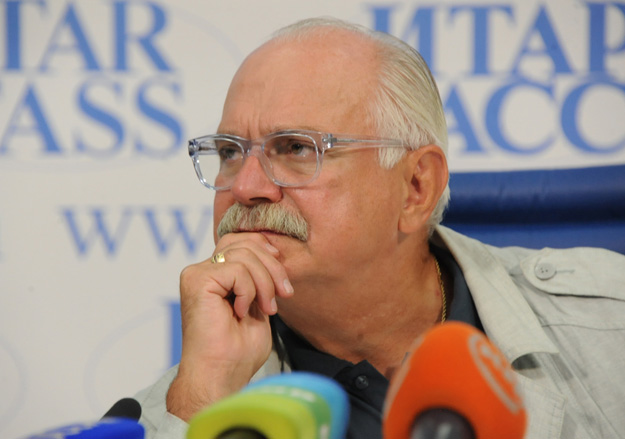The government is preparing a bill on "anti-piracy tax" on the Internet

Nikita Sergeevich thinks over all the details of his concept
First Deputy Prime Minister Igor Shuvalov instructed several ministries, including the Ministry of Culture, the Ministry of Communications, the Ministry of Economic Development, the Ministry of Finance and the Ministry of Justice, to draft a law on “anti-piracy tax” on the Internet. This bill, according to the plan, will oblige telecom operators to pay a fixed fee in favor of copyright holders.
Interestingly, the bill is based on the concept proposed by the Russian Union of Rights Holders (RSP), the head of which is well-known to many of us (and not only in cinema) director Nikita Mikhalkov. The concept Mikhalkov presented personally to Putin last month.
')
Apparently, this concept found understanding in the government, since Shuvalov ordered the ministries to draft a law before December 5 of this year. The bill, subject to its adoption, will introduce the concept of a “global license” for the unrestricted use of information, including copyrighted, on the web. At the same time, any user who will enter into a contract for communication services with a communication operator (provider) will have to agree to receive a license.
As mentioned above, the provider will make deductions (the amount of deductions, as you can understand, will be approximately 1-3 dollars per subscriber per year). About 200-600 million dollars are received annually, and the collective rights management organization will collect these funds (this organization is not yet specified).
By the way, the global license applies to all types of content on the Web, including movies, music, and books (although RSP proposes to exclude software and so-called “complex works”). I wonder if this collection gives the right to lawfully use torrents to download any available information by the user?
The review of the draft law has already come from the Ministry of Communications and Mass Media, where they were not very supportive of this initiative. According to the ministry, the bill will allow introducing an opaque fundraising scheme in the interests of an indefinite number of persons without the power of attorney of these persons. Plus, if the bill becomes law, the rights holders simply cannot protect their own interests on their own.
With the fact that the bill introduces an opaque fundraising scheme, some rights holders agree. “We are categorically against the usurpation of the rights of hundreds of thousands of rightholders in the interests of a small group of people,” said Sergei Semenov, legal adviser to the Association of Film and Television Producers.
The same opinion is shared by the analyst of the Russian Association of Electronic Communications (RAEC) Irina Levova. In her opinion, the concept of the RSP in its current form involves pumping money from telecom operators into the pocket of the Russian Authors ’Society (founder of the RSP).
Source: https://habr.com/ru/post/362783/
All Articles